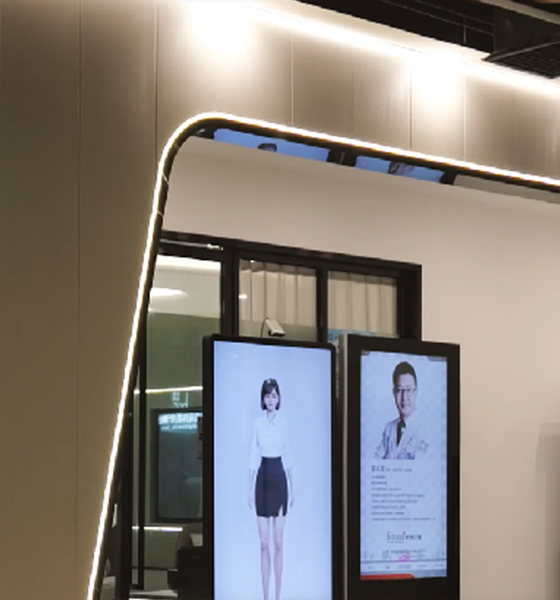The integration of AI technology into hospital kiosks has redefined patient interaction and service efficiency in medical institutions. From streamlining administrative processes to enhancing patient experiences, AI-powered hospital kiosks are emerging as a transformative tool for healthcare services. This article delves into how AI hospital kiosks are revolutionizing hospital operations, their development trends, and their advantages.

1. The Role of AI in Hospital Kiosks
AI technology enhances hospital kiosks in several key areas, from automating routine tasks to providing personalized patient services. These kiosks now possess advanced capabilities such as:
- Automated Check-In and Appointment Scheduling: Patients can register, schedule, or check-in for appointments without human intervention, minimizing waiting times and administrative load.
- Insurance Verification and Billing Assistance: AI systems can swiftly verify insurance details and provide accurate billing breakdowns, ensuring a smoother patient experience.
- Real-Time Language Translation: Multilingual support is essential in diverse communities. AI hospital kiosks provide real-time translation, enhancing accessibility for non-native speakers.
2. Enhanced Patient Interaction Through AI
AI-driven kiosks provide a user-friendly interface and personalized interactions that enhance patient satisfaction. Features include:
- Symptom Assessment and Triage: Advanced kiosks guide patients through a symptom-check process and suggest possible care options, directing them to the right department.
- Interactive Health Education: Patients can receive tailored health information or updates on their condition while waiting.
- Feedback Mechanisms: AI kiosks can prompt patients for feedback after their visit, contributing to continuous service improvement.
3. Advantages of AI Hospital Kiosks
AI hospital kiosks bring significant benefits to healthcare facilities:
- Reduced Administrative Burden: By handling routine tasks, kiosks free up healthcare staff to focus on more complex patient needs.
- Improved Patient Flow: Streamlining check-in and service processes reduces bottlenecks and waiting times.
- Data Accuracy and Safety: Automated input and processing reduce human error, enhancing the accuracy and security of patient data.
- Cost-Effectiveness: While there is an upfront investment, the long-term savings from reduced labor costs and efficient processes contribute to overall financial benefits.
4. Development Trends in AI Hospital Kiosks
The future of AI hospital kiosks is marked by continuous evolution:
- Integration with Telehealth Services: Kiosks equipped with telehealth capabilities allow patients to consult remotely with specialists.
- Advanced Health Monitoring Tools: Enhanced AI kiosks are incorporating sensors and diagnostic tools for preliminary health assessments, such as temperature checks and blood pressure monitoring.
- AI-Powered Virtual Assistants: Some hospital kiosks now include virtual assistants that guide users through their journey using conversational AI.
5. Challenges and Solutions
Despite their benefits, implementing AI hospital kiosks comes with challenges:
- Initial Costs: High implementation costs can be a barrier, but partnerships and phased rollouts can mitigate expenses.
- Patient Adaptation: Not all patients are comfortable with technology. Kiosks should have simple, intuitive designs and staff support for guidance.
- Privacy Concerns: Ensuring data security is critical, and hospitals must use encrypted communication and robust cybersecurity protocols.
6. Data Overview: The Impact of AI Kiosks
Statistics on AI Hospital Kiosk Benefits:
- 25% reduction in patient check-in time: Automated kiosks streamline the process.
- 40% lower administrative workload: AI handles routine tasks, freeing up hospital staff.
- Increase in patient satisfaction: Surveys show a significant rise in satisfaction due to shorter wait times and personalized service.
Conclusion
AI hospital kiosks are more than just a technological novelty; they are a critical component in modernizing healthcare delivery. From improving patient flow to enhancing service personalization, these kiosks bring measurable benefits to hospitals. As technology evolves, AI hospital kiosks will continue to be pivotal in shaping a more efficient, patient-centric future.

 2024-11-04 21:33:58
2024-11-04 21:33:58


